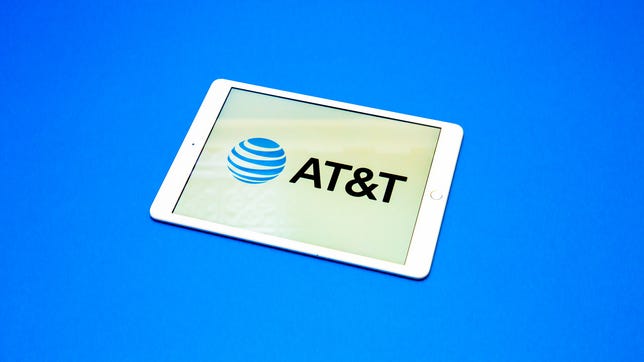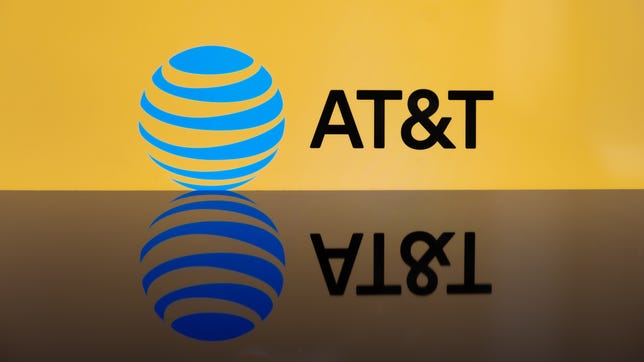According to OpenVault’s most recent report on US broadband usage, gigabit internet adoption is up over 11%, double the figure from the previous year. Good thing, too: The Fiber Broadband Association says that by the end of this decade, a four-person household will require over 2,100 megabits per second (or just over 2 gigabits) in download speed.
I can feel your skepticism: it’s not 2030 yet. Making that big of an upgrade is probably overkill for most of us. But internet service providers aren’t waiting to offer multi-gigabit packages to their customers. We’re barely halfway through 2022, but we’ve already been introduced to new multi-gig internet plans from AT&T, Frontier, Optimum, Verizon and Ziply Fiber, to name a few. Other ISPs, including Comcast Xfinity and Google Fiber, already had multi-gig offerings of their own too.
For this list, we’ll focus on the best multi-gig internet offerings from major ISPs. However, I want to note that smaller, regional providers also have some pretty competitive plans. For instance, Midco offers 2Gbps and 5Gbps plans to its customers in South Dakota. The citizens of Chattanooga, Tennessee, have access to the country’s fastest residential plan, a 10Gbps tier from the city-owned fixed broadband of EPB. With that in mind, let’s look at some of the best multi-gig internet plans currently available from national providers.

 \n ","topic":"","ttag":"","searchDim":"article-body|listicle|image","variant":"article-body|listicle|image","viewguid":"","event":"listicle|image|1","correlationId":"","_destCat":"https:\/\/www.att.com\/internet\/fiber\/","productName":"","formatType":"IMAGE","location":"LIST","position":1,"sku":"","dwLinkTag":"article-body|listicle|image","selector":"#article-body #listicle-b45ffb99-4092-4b6f-a731-8ec66bb7e143 .itemImage"}}” rel=”noopener nofollow” target=”_blank”>
\n ","topic":"","ttag":"","searchDim":"article-body|listicle|image","variant":"article-body|listicle|image","viewguid":"","event":"listicle|image|1","correlationId":"","_destCat":"https:\/\/www.att.com\/internet\/fiber\/","productName":"","formatType":"IMAGE","location":"LIST","position":1,"sku":"","dwLinkTag":"article-body|listicle|image","selector":"#article-body #listicle-b45ffb99-4092-4b6f-a731-8ec66bb7e143 .itemImage"}}” rel=”noopener nofollow” target=”_blank”>


Sarah Tew/CNET
AT&T drove an impressive flag in the ground with its top-tier fiber internet offering. At $180 a month for symmetrical 5Gbps speeds, Internet 5000 comes in at a staggeringly low cost of fewer than 4 cents per Mbps. That’s the lowest we’ve seen for any plan from all the national providers we’ve covered thus far at CNET, not just the best multi-gig internet plans. In contrast, a similar speed tier from Ziply Fiber will cost you $300 a month.
In addition to the excellent value per Mbps, customers face no price increase after 12 months, no data caps, no annual contract and no monthly equipment fees. Also, AT&T includes its internet security package, AT&T ActiveArmor, for free as well. You may need to pay a $99 installation fee upon signing up, but AT&T has many online promotions, including a current reward of a $200 gift card, that more than compensate for that initial cost.

 \n ","topic":"","ttag":"","searchDim":"article-body|listicle|image","variant":"article-body|listicle|image","viewguid":"","event":"listicle|image|2","correlationId":"","_destCat":"https:\/\/fiber.google.com\/internet\/b\/","productName":"","formatType":"IMAGE","location":"LIST","position":2,"sku":"","dwLinkTag":"article-body|listicle|image","selector":"#article-body #listicle-de7faa8e-e192-4ef1-8c69-9c7841f24dbf .itemImage"}}” rel=”noopener nofollow” target=”_blank”>
\n ","topic":"","ttag":"","searchDim":"article-body|listicle|image","variant":"article-body|listicle|image","viewguid":"","event":"listicle|image|2","correlationId":"","_destCat":"https:\/\/fiber.google.com\/internet\/b\/","productName":"","formatType":"IMAGE","location":"LIST","position":2,"sku":"","dwLinkTag":"article-body|listicle|image","selector":"#article-body #listicle-de7faa8e-e192-4ef1-8c69-9c7841f24dbf .itemImage"}}” rel=”noopener nofollow” target=”_blank”>


Sarah Tew/CNET
If you want to enter the multi-gig-verse, this is your best, most affordable option. Google Fiber’s 2 Gig plan features 2Gbps download and 1Gbps upload speed for $100 a month. That’s a cost of 5 cents per Mbps and is cheaper than any other provider’s 2Gbps offering. There’s no additional cost for the provided Wi-Fi 6 equipment and you get unlimited data with no contracts required.
The only downside here is that Google Fiber is still only available in 12 markets across the country. The company aims to continue expansion in 2022, but that’s of little consequence to those outside its serviceability windows in Alabama, California, Georgia, Iowa, Kansas, Missouri, North Carolina, Tennessee, Texas and Utah.

 \n ","topic":"","ttag":"","searchDim":"article-body|listicle|image","variant":"article-body|listicle|image","viewguid":"","event":"listicle|image|3","correlationId":"","_destCat":"https:\/\/www.att.com\/internet\/fiber\/","productName":"","formatType":"IMAGE","location":"LIST","position":3,"sku":"","dwLinkTag":"article-body|listicle|image","selector":"#article-body #listicle-3cfe4591-b4eb-4d3a-bf37-626084f9860e .itemImage"}}” rel=”noopener nofollow” target=”_blank”>
\n ","topic":"","ttag":"","searchDim":"article-body|listicle|image","variant":"article-body|listicle|image","viewguid":"","event":"listicle|image|3","correlationId":"","_destCat":"https:\/\/www.att.com\/internet\/fiber\/","productName":"","formatType":"IMAGE","location":"LIST","position":3,"sku":"","dwLinkTag":"article-body|listicle|image","selector":"#article-body #listicle-3cfe4591-b4eb-4d3a-bf37-626084f9860e .itemImage"}}” rel=”noopener nofollow” target=”_blank”>


James Martin/CNET
While the best overall value goes to AT&T’s Internet 5000 plan, you can get all the same perks for $70 less a month with the provider’s 2Gbps option. Specifically, you get AT&T ActiveArmor (free internet security) and a $200 gift card. While your cost per Mbps may not be as low as AT&T Internet 5000, it still carries a significant value for a lower monthly charge.
Other multi-gig internet plans to consider
While the three options we listed above rose to the top of our list, they aren’t available in all markets. Additional speedy plans, offered by other ISPs, might get your attention, but they have one or two caveats that kept them from our winner’s circle among the best multi-gig internet plans.
- Frontier Fiber 2 Gig: Impressively, Frontier has rolled this out to all fiber households within its footprint, which means 4 million customers across 15 states. While AT&T’s multi-gigabit plans are available to more people (5 million), it’s not yet available in all AT&T markets. Frontier’s offering also features free Wi-Fi 6E equipment rental, unlimited data, no contracts, no activation fee and free multi-device security. What’s the drawback? At $150 a month, it’s the most expensive 2Gbps tier among the providers included here.
- Verizon Fios 2 Gigabit Connection: Verizon Fios is often near the top of the heap regarding customer satisfaction numbers. Its 2Gbps tier is competitively priced at $120 a month and includes a Whole-Home Wi-Fi system for free, 2TB of Verizon Cloud storage and a year of Disney Plus for free. However, it didn’t make the top of our list for the best multi-gig internet because it’s currently only available in New York City.
- Xfinity Gigabit Pro: To its credit, Xfinity has been offering its multi-gigabit tier longer than any of the other national providers. At $300 a month, it’s also the most expensive. While the 6Gbps plan is technically available in all cities within Xfinity’s footprint, it requires a site survey to first confirm availability for your address. Once you add the two-year contract requirement (with early termination fees looming if you bail early), $20-a-month equipment rental charge and stiff activation and installation fees (potentially totaling $1,000), those top speeds are very cost-prohibitive.
- Ziply Fiber 2 Gig and 5 Gig: Like AT&T, Ziply Fiber has two multi-gig internet plans. The 2Gbps plan is $120 a month and the 5Gbps tier is $300 a month. Both include unlimited data and require no contracts. However, not all households within Ziply Fiber’s footprint are eligible — availability is currently limited to 60 cities in the Northwest (approximately 170,000 homes in Idaho, Oregon and Washington).
Best multi-gig internet plans FAQs
How can I get multi-gigabit internet?
In most cases, especially if you already have fiber internet service, you won’t have to do anything beyond contacting your provider to upgrade to a multi-gig internet plan. There may be an installation fee (often waived if you order online), but usually, any additional equipment you need (a modem/router capable of multi-gig speeds) will be included.
However, to take advantage of Xfinity’s Gigabit Pro plan, you’ll first need to reach out to Xfinity and schedule a site survey. Even if you’re a current Xfinity customer or know you’re in an Xfinity-serviceable area, Comcast will still need to inspect to see if your home is within the minimum distance from a fiber node. If everything checks out, it may take several weeks before your household can get Gigabit Pro fully installed.
What does multi-gigabit internet cost?
Generally speaking, the best multi-gig internet plans are affordable if you have a fiber internet connection. Not only does fiber typically provide the best performance, featuring symmetrical or near-equal download and upload speeds, but it also presents the cheapest options. For example, Google Fiber’s 2Gbps plan, which includes all equipment costs and fees in its monthly rate, checks in at 5 cents per Mbps and AT&T’s 5Gbps tier, the cheapest we’ve seen, rings in at 4 cents per Mbps. Neither requires a contract.
On the flip side, Xfinity’s Gigabit Pro is one of the priciest broadband packages you’ll find. It costs $300 a month, and you can get it only if you sign up for a two-year contract. The cost per Mbps, at 5 cents, is great, but there’s a $20-a-month rental charge for equipment. There’s also a pretty hefty additional expenditure right out of the gate: Households face an activation fee of up to $500 and an additional installation fee of another $500. That’s $1,000 before you even get to the regular monthly charges.
Is it worth getting a multi-gig internet plan?
Perhaps. Even if you go with the most expensive plan out there, the monthly cost per Mbps of multi-gigabit internet is actually quite competitive. Plus, the near-symmetrical upload and download speeds of these plans certainly set up your household with plenty of opportunities to utilize a multitude of connected devices, now and in the future.
However, most households right now don’t need all that speed. If you go one step down and opt for a provider’s gigabit plan, for example, you can get plenty of speed for anywhere between 5-10 cents per Mbps and often your modem/router equipment fee is included too. It may not be as flashy as having the best multi-gig internet and the fastest residential plan currently available, but it’ll get you some splashy speeds at a more affordable price.
